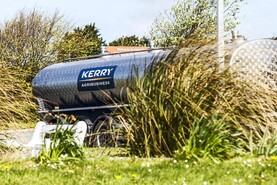The high number of GLAS payment cuts imposed following Department of Agriculture farm inspections has raised concerns that the scheme’s actions may be difficult to understand or apply by farmers.
The Department of Public Expenditure and Reform has flagged that the scheme’s ultimate objectives may be negatively affected as a result.
Approximately 2,590 GLAS farmers were inspected in 2018.
Those farmers lost 4% of their combined GLAS payments because the Department of Agriculture inspector imposed payment reductions for small errors or penalties for larger non-compliances.
The average payment to a GLAS farmer in 2018 was €4,138.
Of those farmers penalised following an inspection, the average penalty was €431 or 10% of their payment.
Half of the payment cuts imposed were because of minor infringements.
The Department of Public Expenditure and Reform’s review of GLAS found that these small reductions were common and “may reflect difficulties with understanding or applying the terms and conditions of the actions”.
A Department of Agriculture survey found that 50% of farmers who opted not to enter GLAS said it was because of the complicated nature of the scheme.
The top actions associated with penalties in 2018 were maintaining hedgerows, low-input permanent pasture, wild bird cover, fencing watercourses and planting new hedges.
These were are also among the most common GLAS actions.
Approximately 50 farmers had their GLAS contract terminated in 2018, resulting in the clawback of all payments they received since the scheme began.
Read more
Environment: act on GLAS catch crops
Farmers urged to be part of the climate solution
Expecting 12,000 farmers to use LESS slurry equipment ‘unworkable’
The high number of GLAS payment cuts imposed following Department of Agriculture farm inspections has raised concerns that the scheme’s actions may be difficult to understand or apply by farmers.
The Department of Public Expenditure and Reform has flagged that the scheme’s ultimate objectives may be negatively affected as a result.
Approximately 2,590 GLAS farmers were inspected in 2018.
Those farmers lost 4% of their combined GLAS payments because the Department of Agriculture inspector imposed payment reductions for small errors or penalties for larger non-compliances.
The average payment to a GLAS farmer in 2018 was €4,138.
Of those farmers penalised following an inspection, the average penalty was €431 or 10% of their payment.
Half of the payment cuts imposed were because of minor infringements.
The Department of Public Expenditure and Reform’s review of GLAS found that these small reductions were common and “may reflect difficulties with understanding or applying the terms and conditions of the actions”.
A Department of Agriculture survey found that 50% of farmers who opted not to enter GLAS said it was because of the complicated nature of the scheme.
The top actions associated with penalties in 2018 were maintaining hedgerows, low-input permanent pasture, wild bird cover, fencing watercourses and planting new hedges.
These were are also among the most common GLAS actions.
Approximately 50 farmers had their GLAS contract terminated in 2018, resulting in the clawback of all payments they received since the scheme began.
Read more
Environment: act on GLAS catch crops
Farmers urged to be part of the climate solution
Expecting 12,000 farmers to use LESS slurry equipment ‘unworkable’






 This is a subscriber-only article
This is a subscriber-only article










SHARING OPTIONS: